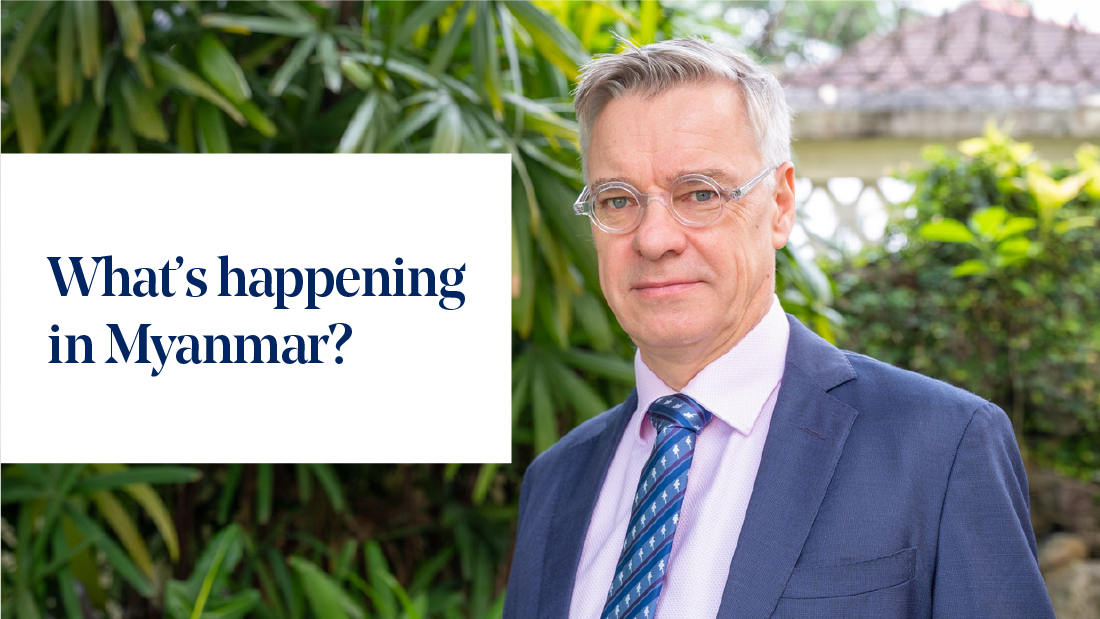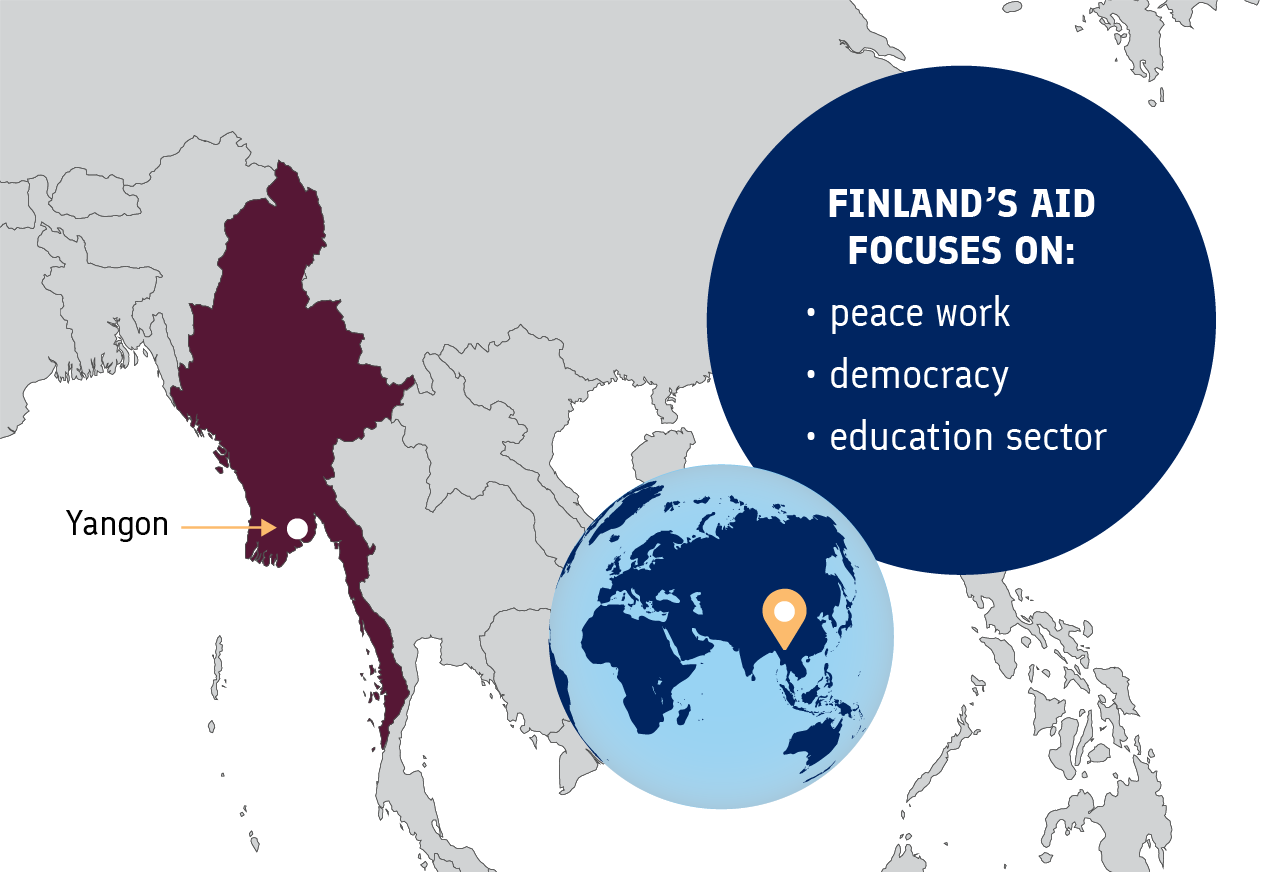Promoting peace and democracy in Myanmar
The military coup in Myanmar last year shocked the people and stalled the country’s positive development. Despite the crisis, Pekka Shemeikka, Head of Mission at Finland’s Embassy to Myanmar, sees a lot of potential in the country and its 55 million inhabitants provided that a credible way out of the conflict is found.

Photograph: Ulla Shemeikka
How would you describe the current situation and the biggest challenges in Myanmar?
Situation in Myanmar is extremely challenging. I believe that the highly critical situation will continue at least the next year. The coup in February 2021 plunged the country into chaos. The security situation varies from one part of Myanmar to another, and unrest has spread widely across the country. Myanmar is now a battlefield of different forces: the Myanmar armed forces, its opponent the shadow National Unity Government (NUG), and pro-democracy groups empowered by the military coup. In parallel, there are various ethnic armed groups and the ousted former ruling party National League for Democracy (NLD) which is led by the ever-popular Aung San Suu Kyi who is in prison. The military regime is planning to hold elections in August 2023 on the basis of Myanmar’s old constitution. However, Myanmar’s anti-junta groups are boycotting the plan.
It remains to be seen whether the elections are held and whether the situation escalates. The younger generations, especially, are extremely frustrated and call for a fundamental change. The hardest part is to find some kind of agreement among the different parties to the conflict to allow a return to civilian rule and democratic transition. The people of Myanmar deserve their country to evolve towards a more efficient state and towards sustainable development.
How is Finland supporting Myanmar?
Finland has been supporting peace in Myanmar together with international partners for ten years now. Nine EU Member States are present in Yangon, among them three Nordic countries. The four Nordic countries also work closely together in Yangon. Finland’s development cooperation with Myanmar focuses on promoting peace work that encompass all parties, advancing democracy and supporting the education sector. Finland’s support is being channelled via UN agencies and various civil society organisations (CSOs). Several Finnish CSOs are active with development cooperation with Myanmar.
How do you see the future of Myanmar?
It depends on the time. In the short run, it is important to find a way out of the acute crisis. The next step is to reach a sufficient consensus on a credible roadmap for returning Myanmar to the path towards democracy and for strengthening civilian rule. Myanmar’s institutions must be developed and strengthened, and the country’s ethnic problems must be resolved. Myanmar opened up to the world at a rapid rate in the 2010s, but now this progress has now stalled. In 2013, it was estimated that USD 650 billion would need to be invested in Myanmar and about half of that in Myanmar's infrastructure. I see this as an opportunity for Finland as well. Besides, there is an opportunity to support the green transition in Myanmar and tackling problems created by biodiversity loss and climate change.
What has touched you personally in Myanmar and what can we learn from the locals?
I have been touched especially by the discretion and genuine friendliness of the people. There is something remarkable in the way people communicate with each other. Myanmar has been a closed society for such a long time, and compared to our ‘more developed’ countries it is still maybe more authentic without commercialism. The people of Myanmar would have a lot to offer to the world.

In this article series, Finnish ambassadors around the world tell what is happening in their duty station.
Text: Anna Palmén
